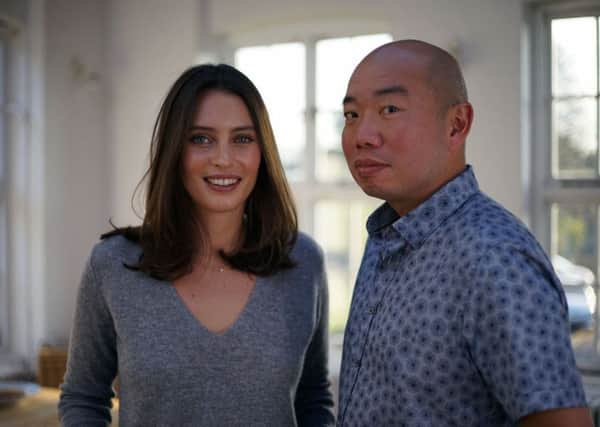Stephen Jardine: The myth of '˜clean eating'is rumbled


Usually my annual food and drink crystal ball gazing is well informed but a bit wide of the mark. I’ve still got the hump about the failure of camel milk to become the next big thing. However, as far as the grim fascination with clean eating amongst fad dieters and Instagram idiots is concerned, it seems I nailed it this time.
Just two weeks after predicting it was over and done with, reality is starting to bite for grain-free, plant-based, gluten free misery meals. In a new BBC documentary later this month called Clean Eating: The Dirty Truth, Cambridge University scientist Dr Giles Yeo explores how the craze has been distorted to the point where it is hailed as a cure for everything from headaches to cancer.
Advertisement
Hide AdAdvertisement
Hide AdIt all started out quite innocently as an attempt to reduce our intake of junk food, replacing it with wholesome unprocessed natural foods. Along the way clean eating became the hippest thing in food. Search “clean eating” on Instagram and over 27 million images pop up of almond porridge and pineapple and avocado salads.
Amidst this blizzard of hype, the claims attached to clean foods became more and more spurious. The new documentary features a ranch where the pseudo science surrounding clean eating involves cancer patients being treated with alkaline foods in hope more than conviction.
The backlash has come from scientists who believe the supposed benefits of clean eating simply don’t stack up. There simply is no firm scientific evidence that grains are bad for the human body. In terms of gluten, only 1 per cent of the population have coeliac disease. Many more people choose gluten-free products but that is a lifestyle choice based on perception not reality.
“People who are sensitive to gluten may feel better but a larger proportion will derive no significant benefit from the practice,” said Dr Daniel Leffler, an assistnat professor at Harvard Medical School. Just this week the darling of the clean eating movement is reported to have distanced herself from what it has become. Food blogger Ella Mills has built her Deliciously Ella empire on the benefits of cutting out meat, dairy and refined sugar. The daughter of supermarket heiress Camilla Sainsbury now says clean eating has lost its way.
Eating disorder specialist Dr Mark Berelowitz would probably agree with that. He says up to 90 per cent of the patients with problems he sees at the Royal Free Hospital in North London are following clean eating diets.
At a time of year when so many of us are struggling with excess seasonal weight, the documentary exploding clean eating could not be better timed.
From skipping dessert to ordering salad instead of chips, we are all doing the best we can. Clean eating says that is not good enough. The suggestion is, if we are not eating clean then we are lazy, unmotivated and eating dirty.
In January there are more than enough things to make us feel bad about ourselves. The last thing any of us need is clean eating.